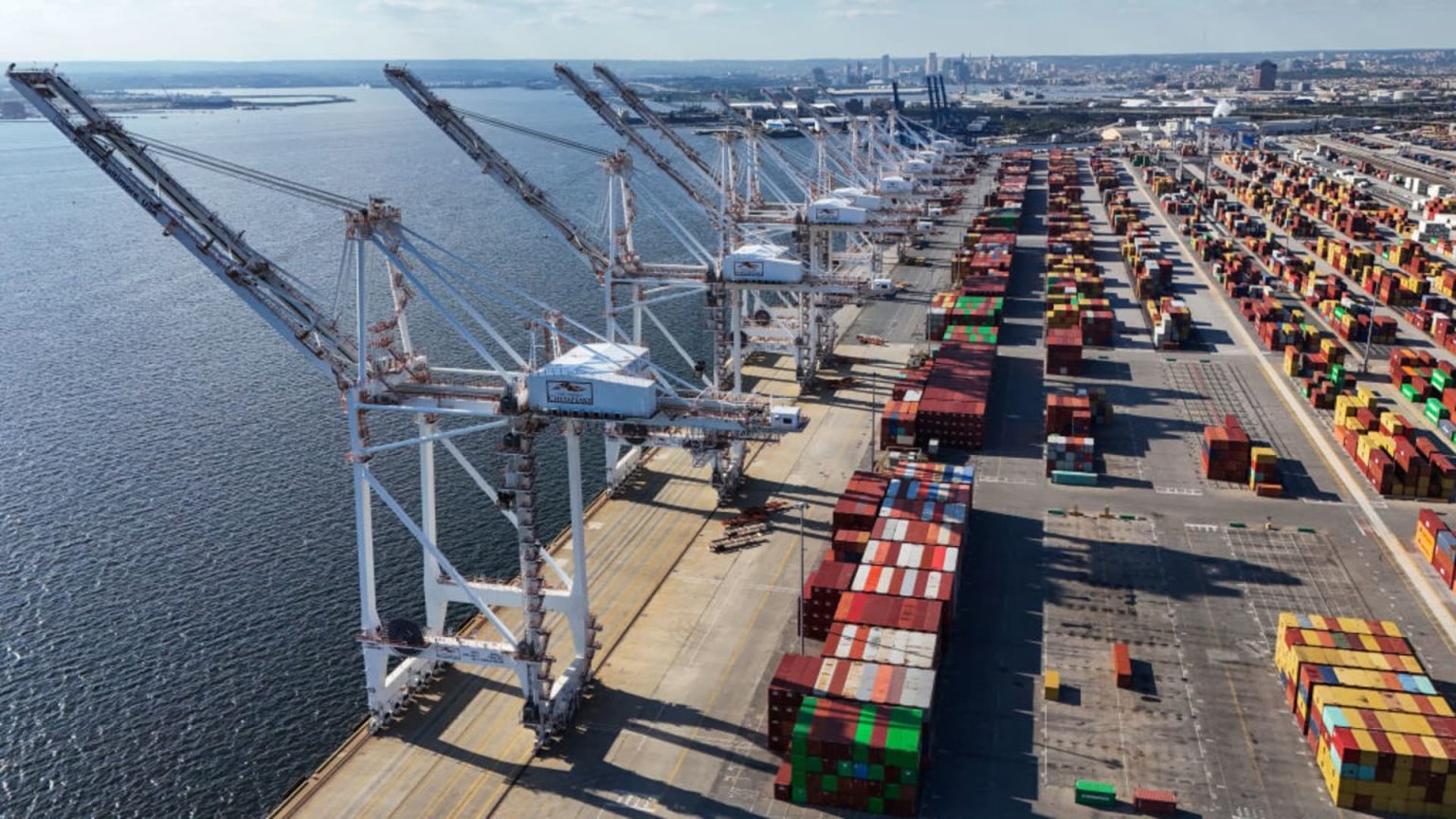Shares of Moller-Maersk fell more than 8% on Friday as European shipping companies took a hit following the conclusion of a U.S. port strike. The strike, which had the potential to disrupt global supply chains, ended after U.S. dockworkers and the United States Maritime Alliance reached a tentative agreement on wages and extended their existing contract through Jan. 15. This deal gave the parties more time to negotiate a new agreement and avoid further disruptions.
A prolonged U.S. port strike would have provided European shippers with an opportunity to expand their market share in the global supply chain industry. Maersk, one of the world’s largest shipping companies, saw its shares drop by 7.65% as a result of the news. Other European shipping companies also experienced losses, with Germany’s Hapag Lloyd falling by 11.75% and Swiss logistics company Kuehne + Nagel declining by 1.79%. The uncertainty caused by the strike and its potential impact on global trade led to a sell-off of European shipping stocks.
The resolution of the U.S. port strike was seen as a positive development for the shipping industry, as it averted a potentially disruptive situation. By reaching a tentative agreement on wages and extending the existing contract, U.S. dockworkers and the United States Maritime Alliance were able to avoid further disruptions to operations at key ports. This news helped stabilize the market after the initial sell-off, with some European shipping companies recovering from their earlier losses.
The impact of the U.S. port strike on the global supply chain industry highlighted the interconnected nature of international trade. Any disruptions at major ports can have far-reaching consequences for companies involved in shipping and logistics. The market reaction to the strike also underscored the importance of stable labor relations in the shipping industry, as uncertainty around labor disputes can lead to volatility in stock prices and investor confidence.
Investors and market watchers will be keeping a close eye on developments in the shipping industry following the resolution of the U.S. port strike. The outcome of future negotiations between dockworkers and shipping companies could have implications for global supply chains and the performance of companies in the industry. The impact of the strike on European shipping stocks serves as a reminder of the risks and challenges that companies face in the dynamic and competitive world of international trade.
In conclusion, the conclusion of the U.S. port strike had a significant impact on European shipping companies, with Moller-Maersk and other firms experiencing losses in the wake of the news. The resolution of the strike was seen as a positive development for the industry, as it averted further disruptions and provided a pathway for continued negotiations. The market reaction to the strike highlighted the interconnected nature of global supply chains and the importance of stable labor relations in the shipping industry. Investors will be closely monitoring developments in the industry as negotiations between dockworkers and shipping companies continue.


